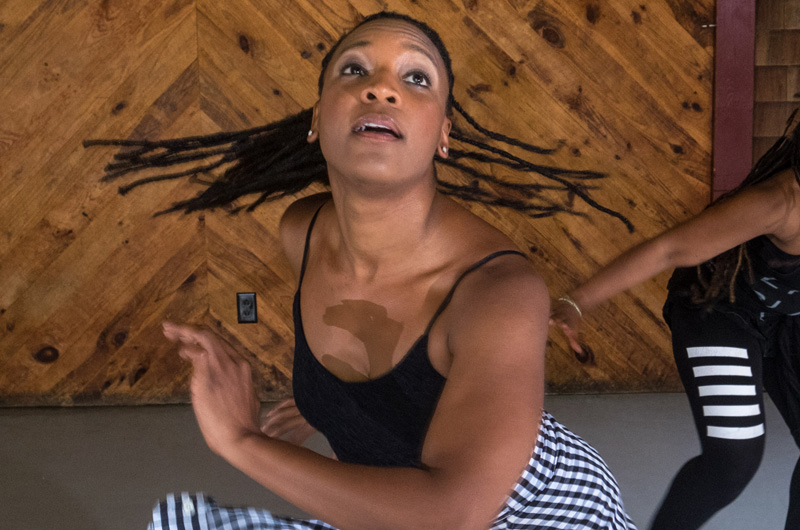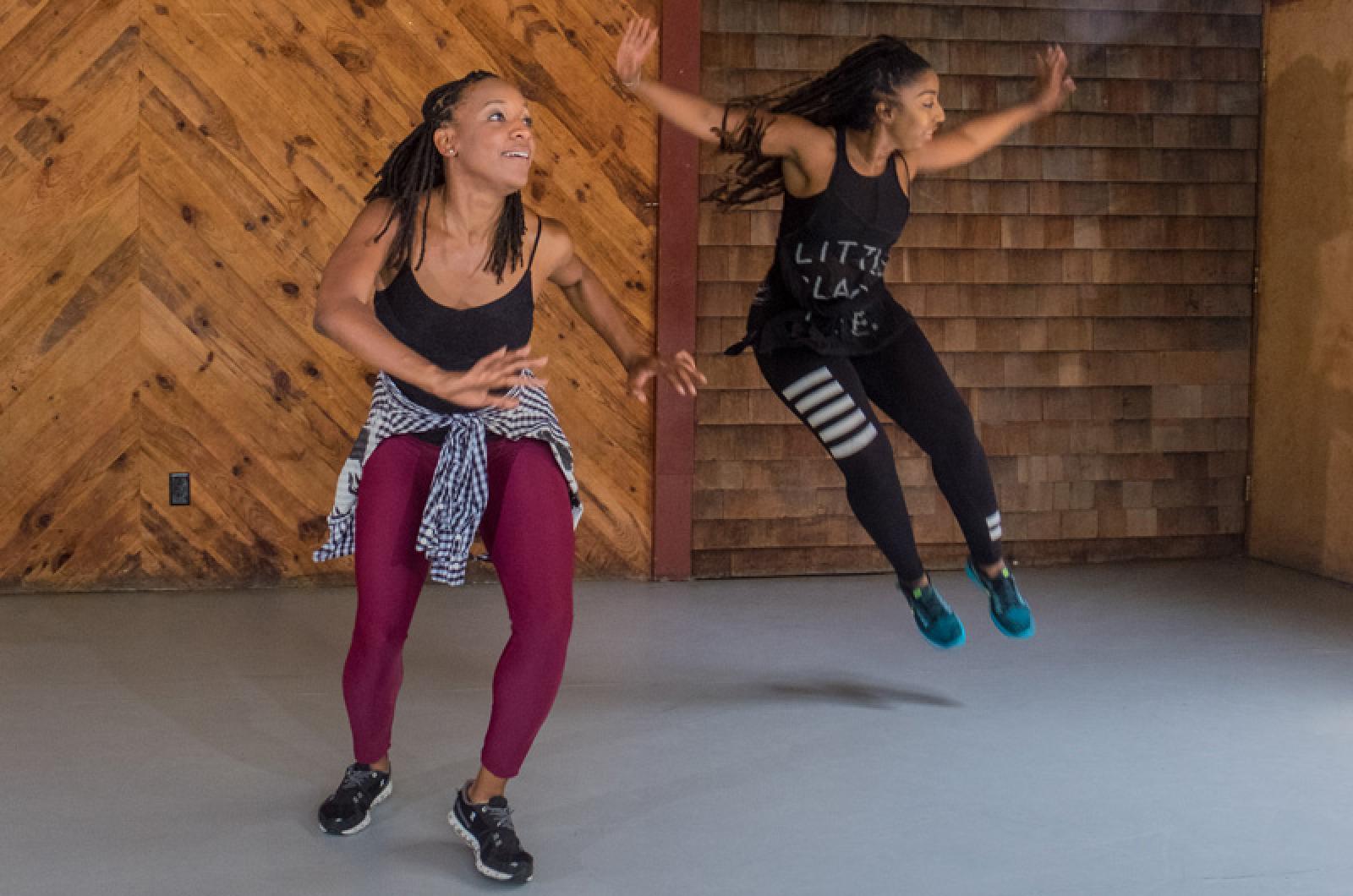Last Friday evening, choreographer Camille A. Brown and her company of dancers stood in a line rubbing their palms together inside the space at the Yard in Chilmark. The dancers were quietly warming up for their performance of ink (spelled with a lower case i) while David White, director of The Yard, introduced them.
A breeze flowed through the wide open doors and birds chattered in the rustling leaves. It was a peaceful moment, indicative of the calm Chilmark environment which has helped Ms. Brown dig into some difficult themes over the years. This summer marks her fourth visit to the Vineyard in five years.
Ink is the second part in a trilogy of dances, and was partly developed during a residency here in 2014. The third dance in the series, Black Girl: Linguistic Play, will be presented at the Performing Arts Center on Saturday.
On Friday, the piece started off with a simple drumbeat and worked up to a frenzy of sound and movement. Ms. Brown rolled up her sleeves, stirred a large pot and wrung out a cloth. Wilson Torres accompanied her on the drums while Ms. Brown performed a series of gestures related to both her own experience as a black woman and roles black women have been forced to fill. As the drumming grew faster, Ms. Brown’s breathing became audible as she frantically sped through her movements and through the roles of black women throughout history.

Ink also included a piece danced by Catherine Foster that referenced the long history of social dances, and a piece with Maleek Washington and Timothy Edwards as two young men growing up from boyhood to adulthood. Sometimes the two men would set off as if to run a race, but right when they were about to get going an invisible punch would strike them down. But the relationship between the men helped them, sometimes literally, get back up.
After the show, Ms. Brown talked about how childhood is taken too soon from black girls and boys. In the talk-back, or what Ms. Brown refers to as the dialogue, she referenced the media portrayal of 17-year-old Trayvon Martin as a man and his lost innocence.
This Saturday’s performance of Black Girl: Linguistic Play continues this exploration into the significance of a stolen childhood.
“Black girls are sometimes not seen as girls,” Ms. Brown said. “The innocence of being a black girl is lost in a lot of narratives that we see out in the media. So it’s to enforce the idea of black girls being humans too. Maturing and experiencing the world is something that every girl, including black girls, goes through.”
Mr. White said the show tackles serious subjects but is based in the fun of childhood. “Double dutch, game playing, rhythmic competitions, she’s exploring what roots these kids have in their own realities.” The importance of social dances reappears in this piece as well. “These kids also grow up with social rituals that bring them together as a community.”
“I hope the audience will experience something they may not automatically confront every day in their real life,” Mr. White added. “The black community at all levels encounters racism and prejudicial behaviors, not to mention violence.”
Mr. White explained that Ms. Brown represented just one perspective of this experience, but a powerful one nonetheless. “One reason we wanted to stay committed to her over the trilogy was to see where it all plays out. For me it’s important to support artists over the arc of their career. Bringing artists back creates a sense of relationship.”
He sees this relationship as a reflection of The Yard’s mission. “It’s not just events anymore. There’s a sense on the artist’s part of belonging as well as engaging with a community,” he said.
Mr. White said he was happy to be able to give Ms. Brown the space and time she needed to work. Prejudice can exist anywhere and the black dance world is no different, he said. “There’s an idea that black women don’t get as much attention as black men in the dance community,” he said. “She’s someone who’s taken it upon herself to change that reality.”
For tickets and more information to Black Girl: Linguistic Play, visit dancetheyard.org.







Comments
Comment policy »